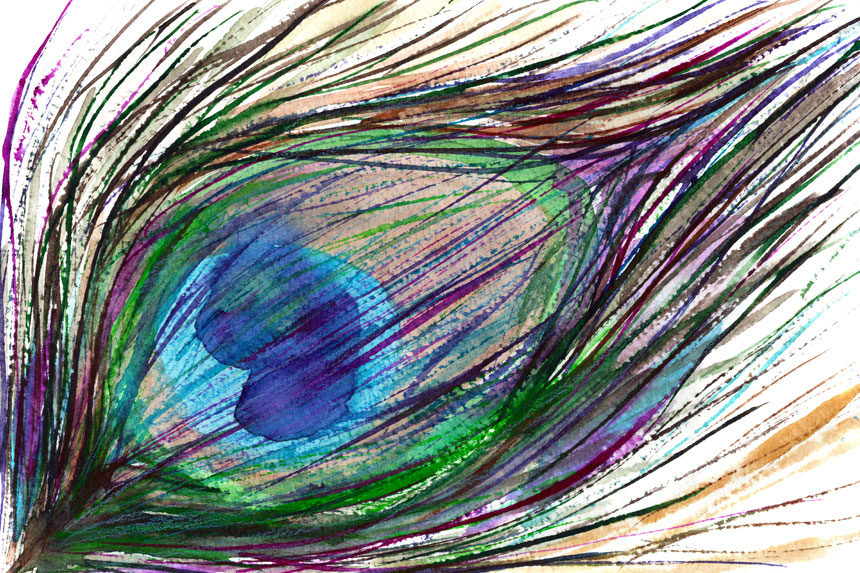When I was in third grade, my friend and I wrote and performed a play for his grandma and her friends. We spent hours on the script, hours on the costumes and cardboard backdrops. Then we lugged everything out to his grandma’s living room, set it all up. Five old ladies sat on the couch and two wingback chairs. They smacked their lips, drank their tea. One of them pulled a lipstick out of her purse. She puckered and applied. She offered the stick to her neighbor, who took it and applied it, too.
Why is that important? All this stuff matters. What I’m telling you is, that lipstick was cherry red. I remember its brightness. Now I might compare the color to an unhappy man’s red sportscar. I might be tempted to call it Ferrari red, or racing red, since I feel like middle age is around the corner, though it’s really not, but I’m too happy to be unhappy, and that’s a rich person’s compensation. What I’m saying is, my third grade friend’s grandma and her troupe passed around a lipstick. They passed it around like schoolgirls. They passed it around like a joint, but of course I wasn’t thinking that at the time. But now I can imagine them as young women when I couldn’t then, their lives brimming with the triumphs and disappointments that brought them to that couch and those wingback chairs, taking comfort in each other and their tea and that cherry lipstick. And you need to know that they applied it carefully, like they were going to the theater, and then they slurped from their cups and waited for the day’s entertainment.
This was my first time in a play. I took it very seriously. The play was called Companion. We each played an animal you wouldn’t expect to be friends with the other. He was a peacock because there were tons of feather boas in the trunk at the foot of his grandma’s bed. He stripped down to his undies, and I wrapped the blue boas around his waist, around his chest and arms. Then we took wire hangers and bent them straight, except for the hooks, which we attached to a belt he put on. About 20 metal wires shot out from his back down to the carpet, and I wrapped the green and yellow and turquoise boas up and down those bent hangers. He put on black eyeliner and one of his grandma’s blue hats. He looked spectacular. And I don’t know where he is now, but I like to think he’s here in the world doing spectacular things.
I was a dog. I know, I know. You’re thinking, Too boring. Or, What kind of dog, at least? But neither of us had a dog, so we didn’t know breed names, and our thinking was, A) a dog would chase a peacock, so it satisfied the requirement of being a surprising friend, and B) if one animal was wild and extravagant, the second should be mild, reserved.
So I put on his grandma’s tan sweatsuit, and we cut out floppy ears from construction paper and taped them to a hat. He wanted to use eyeliner to color my nose black and kind of give me an upward dog smile, but I told him I didn’t like other people touching my face, or touching me in general, and he respected that and said, “Okay, just smile the whole time. And maybe pant sometimes when it’s not your turn to talk.”
And I said, “Sure.” And we put on bathrobes to disguise our costumes while we set up the first cardboard backdrop.
The first act took place in a school lunchroom. On the cardboard behind us we’d drawn rows of tables with kids and animals sitting and eating. The living room rug was our stage. We brought out a card table and two folding chairs, then slipped into the hallway and removed our robes. From the wing we said together, “A play called Companion will begin in 30 seconds.” His grandma and her friends applauded. Then a hush fell over the living room, and my friend came out in his peacock garb and sat sideways in a chair. This allowed his wire-hanger/feather-boa tail to flow behind him without getting messed up, and it allowed him to face the audience so that he could explain to them that he’d tried to sit at a table with other kids and animals but that they’d all told him to go away. They’d said he was funny-looking and a weirdo and that he smelled bad. Then he explained that it was the first day of school and that he was scared and nervous. I think he talked a bit about where he was from and what brought him to the area. Then he turned his head to face the table, picked up an imaginary sandwich, and chewed the air in an overexaggerated manner.
My cue was to come out on the fifth bite. He chewed slowly between each bite, really milking the sadness of the situation. He sighed a lot, too. Then at last I came out and explained that I’d been sitting at a nearby table and that I’d witnessed others being mean to him. I said that I didn’t like the table I was sitting at because the animals there were swearing a lot. And then I said, “I told myself to be courageous, so I stood.” That’s verbatim. You know the way some phrases from your past just stick. I wrote the first part, and he added the last bit. And then we looked at each other like, Wow, we really are a couple of genius playwrights. Though I doubt we knew that word yet.
So then, of course, my doggie self joined him at the table, and we talked and fake-ate food and agreed to be best friends, and then we got up and announced that it was time to go back to class.
The second act doesn’t need as much of a recap. We switched out the cardboard backdrops. The new setting was outside of the school, so we’d drawn sidewalks and a road and some cars and the school in the background. Basically, I was walking home and I was distraught because I couldn’t find my new peacock best friend anywhere. And I carelessly stepped out into the street, definitely not looking left, then right, then left as we’d been taught, and just when I was about to get run over by a speeding car, my new friend rushed over to me and pulled me back to safety. He clutched me in his arms and explained how he’d just saved me from a reckless driver. His grandma and her friends gasped. His heart knocked against my chest as he held me.
The third act took place in a candy shop. It was the same day. These cardboard backdrops had old-timey countertops and jars of candy everywhere. I don’t think either of us had been in a store that was only a candy store, but we’d seen them in movies. We also weren’t allowed to walk home after school, but I digress. So after my near-death experience, I said I wanted to buy my new friend a gumball from the candy shop down the street. You know, to thank him for saving me. And he said he wanted to do the same. He said something like, “You know, you saved me, too. Earlier at lunch. You saved me, too.”
In the candy shop, my doggie self picked out a blue gumball for him, and his peacock self picked out a yellow gumball for me. And these were real props. He had a couple left from his stash and he wanted to use them for this performance. So we talked for a while in the store, and then we purchased the gumballs with imaginary money, and I popped the yellow one in my mouth, and I bit down on it and chewed. And he popped the blue one in his mouth, but then he gargled and coughed and dropped to his knees, hitting the rug hard, then fell forward onto his chest and shook his legs and arms and then stilled.
I rushed to his side and flipped him over. His grandma flew to the ground and shoved a finger in his mouth and was hooking around. We thought he’d died. But he whispered, “Grandma, Joe, it’s fine. This is part of the show.” And he rose, and he escorted his grandma back to the couch, and he spit the gumball into his hand, then raised it above his head, pinching it between his thumb and finger to show the audience, and then he looked at me and then back at our audience, and then he gave a monologue as the ghost of the peacock, and I slid to the side, an unknowing viewer now, too, and he talked about the merits of being kind in all moments because you never know which day might be your last, and he talked about how all things are short-lived — joy, pain, pleasure, heartbreak — and those weren’t his exact words, but he went on for a while, and then he concluded his speech by standing on the brick fireplace and shouting, “Nothing matters in the world except kindness!”
His grandma and her friends went wild with applause. They stood. They cheered. I think even I was clapping. And then my friend gestured for me to move back to center stage with him, and we held hands and bowed together. Bowing again and again and again and again while the ladies who were once vibrant young women cheered our tenderness and ambition while wearing their cherry lipstick.
Later we rode our BMX bikes until our moms picked us up. While we were riding, I was mad at him, but I never told him. I was thinking, How could he abandon the story we’d planned to tell? I didn’t think it was fair that we agreed to have equal parts, but then he ended up shining at the end. But mostly I was upset that the thing I was positive would happen didn’t. You know? And you’re thinking, okay, okay, life lessons. Big deal. People are unpredictable. But you need to know this. He was popping wheelies on his bike. He was smiling. He was beaming while the air blew through his hair. And I tried to stay on his tail, following his moves, murmuring, “We were supposed to eat gumballs together and be happy.”
Featured Image: Shutterstock
Become a Saturday Evening Post member and enjoy unlimited access. Subscribe now




Comments
Thanks, Stanley. That’s very kind.
That story alone was worth the the $15.00 I spent for a years subscription.
Thank you Derek Updegraff.